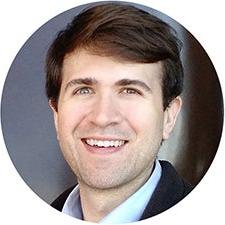乔·阿尼
Whether you consider the Second Amendment a dangerous relic or inspiration for a tattoo, the U.S. public as a whole doesn’t consider guns an important issue, except in the immediate wake of a mass shooting.
“It’s a little depressing that only 8 percent of America thinks guns are an important issue,克里斯·瓦戈说, an associate professor of advertising and information analytics at the 博彩平台推荐’s 传媒、传播与信息学院. “对我来说,这很明显, 这么冷漠, gun control isn’t going to happen at the national level.”
 Vargo的研究 发表在 大众传播与社会 4月, looked at agenda setting and gun control to better understand whether public sentiment around guns is strong enough to pressure legislators into taking action. He studied the impacts of traditional and partisan media coverage, 推特上的帖子(现在是X), 与枪支相关的事件, and Google search behavior to understand how important Americans consider guns against the broader tapestry of challenges facing the nation.
Vargo的研究 发表在 大众传播与社会 4月, looked at agenda setting and gun control to better understand whether public sentiment around guns is strong enough to pressure legislators into taking action. He studied the impacts of traditional and partisan media coverage, 推特上的帖子(现在是X), 与枪支相关的事件, and Google search behavior to understand how important Americans consider guns against the broader tapestry of challenges facing the nation.
长话短说,他们没有. 瓦戈的数据集可以追溯到2015年, and you can easily point out where devastating mass shootings like Parkland, Uvalde and even Boulder took place—there are spikes in Google searches for terms like “second amendment rights,” “concealed carry permit” and “sandy hook donations.”
但它只是一个钉子. 尤其是在保守派中, interest in guns and gun control quickly heads back to its baseline. And even in the immediate wake of the gruesome Parkland shootings, only about 30 percent of Americans considered guns an important issue.
“I expected to see a ramp on this across time—more and more interest as more people are shot, or as more people know people who are killed in mass shootings,瓦戈说. 相反,它只是重置.”
零和游戏
He admitted surprise at his findings, but as an expert on agenda setting, maybe he shouldn’t be. Scholars who study agenda setting look for ways that the news media plays an outsized role in determining what issues we find important. It’s particularly of interest for people in mass communications—like journalists, 广告商, PR experts and content creators—to ensure their work is more likely to generate audience interest.
“Agenda setting is a zero-sum game,瓦戈说. “We can only keep maybe five major national issues in our head at one time—and while some topics, 比如经济, 你会一直在那里吗, 让新的东西上升到顶端, 一定会有别的东西出来.”
Guns are a new direction for Vargo’s work on media effects and agenda setting, which traditionally looks at everything from fact-checking and fake news to how we choose media to form a community around like-minded people. This topic was less about a new direction and more a reaction to how unimportant guns are to Americans. Survey data list guns as a top-25 problem—in other words, invisible.
“I expected to see a ramp on this across time—more and more interest as more people are shot, or as more people know people who are killed in mass shootings. 相反,它只是重置.”
克里斯·瓦戈,副教授
Google Trends proved to be a rich source for understanding salience around guns. Surprisingly, that wasn’t true of the mainstream news media, which had almost no effect on the issue. 而不是, partisan players on both the left and right—think the likes of Wonkette or Breitbart—drive interest, 虽然 that polarization comes with an interesting twist of its own: Right-aligned media barely move the needle, while progressive publications get a boost from conservatives who flock there after shootings.
Vargo称之为“反态度思维”.”
“When conservatives see the left is crying about something, 这表明这对我来说是一个重要的问题, but only in the sense that I’m going to refute it,他说.
Looking at issue salience is important because when a topic does reach a certain threshold, 政府倾向于采取行动. Vargo pointed to gay marriage as one issue where attention built consistently over a long period, leading to same-sex marriages being legalized in 2015. As more people realized they knew gay couples over time, it helped create momentum for the issue.
枪支管制, 虽然, 真的很不寻常。, because we just don’t have a lasting memory for shootings,瓦戈说. “We have this psychological desire to push out bad news, which helps keep gun control out of the spotlight.”
It’s why he’s sure we’ll never see action at the federal level, 虽然 he didn’t rule out the idea of local legislation.
“Guns aren’t an intrusive issue until they are,瓦戈说. “But unless you have something like a Parkland every day, you’re not moving a bunch of senators to take action. In those communities traumatized by gun violence, you might see local and state policies enacted to protect us.”
